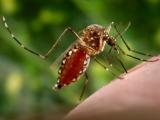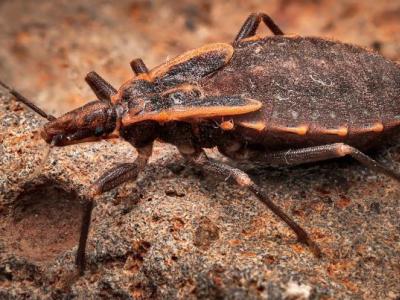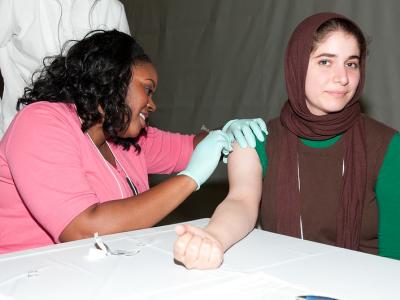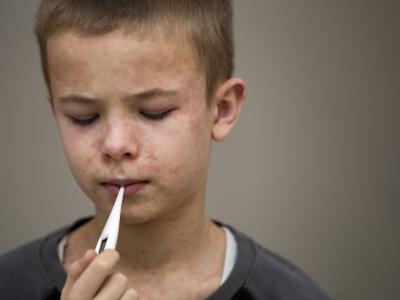Editor's Note: The original news scan on pandemic and Bioshield funding erroneously stated that such funding had been cut from the appropriations bill. This is not the case, and we apologize for the error. The text was corrected Jul 29.
Jul 28, 2010
Emergency appropriations bill doesn't affect pandemic, Bioshield funding
The US House of Representatives on Jul 27 passed the Senate's version of a supplemental appropriations bill that did not cut $2 billion in already budgeted but unspent pandemic and Project Bioshield funding, according to sources at Trust for America's Health, a Washington, DC–based nonprofit health advocacy group. Most of the $59 billion emergency appropriations bill is targeted to the US war in Afghanistan, with funds also going toward the Federal Emergency Management Agency (FEMA), Haitian relief programs, and Gulf oil spill response, CNN reported yesterday. In May the Senate passed a war supplemental bill that did not touch on pandemic and Bioshield funding, but in July the House passed a version that included domestic funding provisions and a $2 billion recision that would have stripped already appropriated funds for pandemic planning and Project Bioshield strategic reserve funds, which the federal government uses to purchase countermeasures. On Jul 22 the Senate rejected the House version of the bill and sent its original version back to the House for a vote. The Senate bill passed yesterday does not address or affect pandemic or Project Bioshield funding, according to experts at TFAH who have been closely following the developments. The supplemental appropriations bill now goes to President Barack Obama for his signature.
Jul 27 CNN report
Egyptian woman dies from H5N1 infection
Egypt's health ministry today reported the death of 20-year-old woman who had been hospitalized in critical condition with H5N1 avian influenza, according to a notice posted on Egypt's Strengthening Avian Influenza Detection and Response (SAIDR). Earlier media reports said the health ministry confirmed her H5N1 infection after the woman, from Qalubia governorate, was admitted to a hospital in Cairo with fever and breathing difficulties. If the World Health Organization (WHO) confirms the woman's illness and death, she will be listed as Egypt's 110th case-patient and its 35th fatality. Today's SAIDR report said the woman had bilateral pneumonia and had been place on mechanical ventilation, and a previous media report said she was receiving oseltamivir (Tamiflu). Reports on her illness and death have not included any details about exposure to infected birds.
Group decries lack of funds for vectorborne diseases
Despite an increase this year in cases of mosquito-borne dengue fever in the United States and Latin America, the Centers for Disease Control and Prevention (CDC) faces elimination of funding for its vectorborne diseases program, according to the American Society of Tropical Medicine and Hygiene (ASTMH). President Obama's 2011 fiscal budget contains no funding for the program, according to the ASTMH. In addition to dengue, the CDC program focuses on detecting and controlling plague, Lyme disease, and viral encephalitis, among other diseases. In a release yesterday, ASTMH President Edward T. Ryan, MD, said, "We are concerned that the currently proposed 2011 budget would not provide sufficient funding for this important government function. One in fifty people in the world dies of an illness acquired from an insect bite, and tens of thousands of Americans already fall ill each year from infections transmitted by mosquitoes and ticks. Insects do not respect state borders, and neither can our national response."
Jul 27 ASTMH press release
















